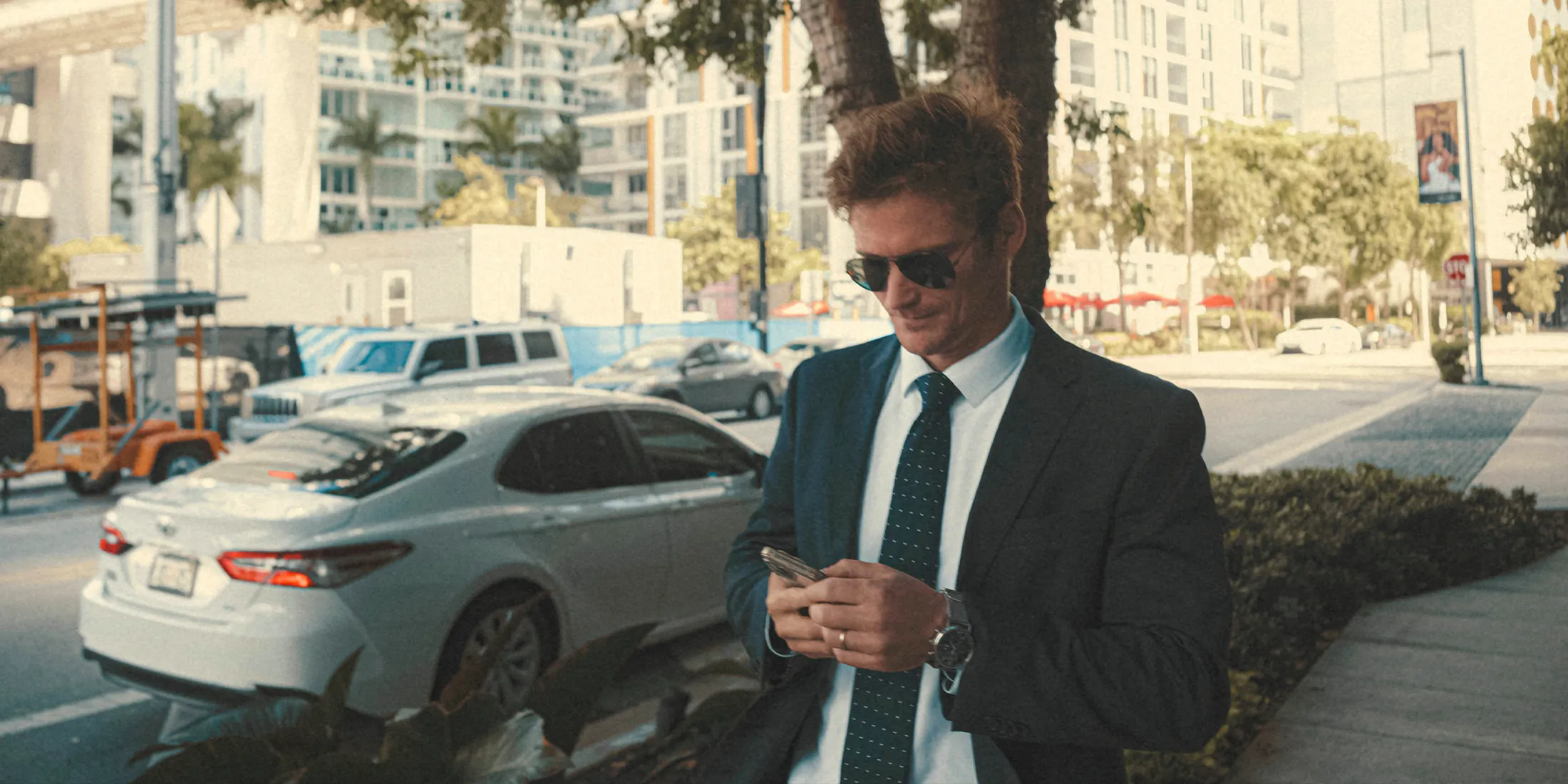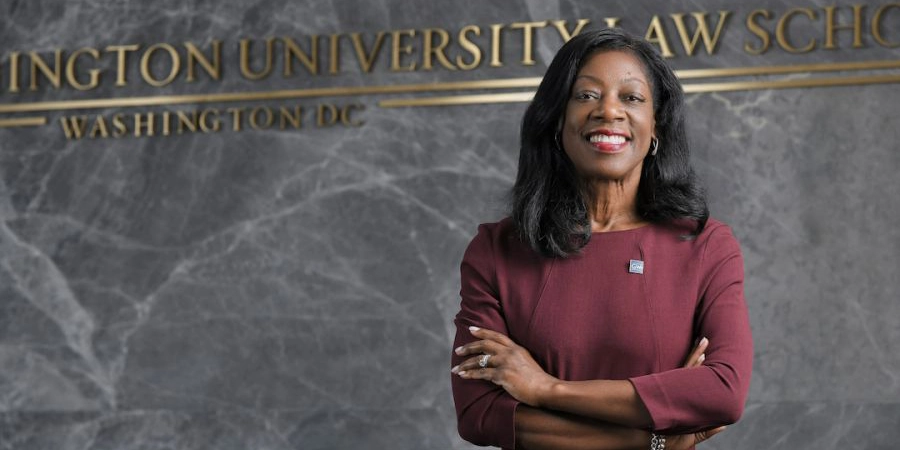*Note: We have limited availability for Single Application Reviews for the 2025-26 cycle—sign up here.
X
As much as we deign to use absolutes, there is at least one principle we can think of that is absolutely non-negotiable in law school admissions. Regardless of your qualifications, breaking this rule can tank any applicant's chances—this episode of Status Check with Spivey discusses that rule.
Mike mentions our blog post predicting the 2023-2024 admissions cycle in this episode—you can read those predictions here. You can find our interview with Terry Real, which Mike also mentioned in this episode, here.
You can listen and subscribe to Status Check with Spivey on Apple Podcasts, Spotify, Stitcher, YouTube, and Google Podcasts.
Welcome to Status Check with Spivey, where we talk about life, law school, law school admissions, a little bit of everything. As we're just about to enter the new 2023-2024 law school admissions cycle, there's going to be a lot of change, and we've talked a lot about that change. We’re about to talk more about that change, but I wanted to actually focus on the singular—or maybe the most important—non-negotiable aspect to law school admissions.
So, I heard a CEO of a company recently give an analogy, which I love, which is his lighthouse analogy. So there's a story of this lighthouse and this ship, and they're out in the ocean, it's dark, and they're miles apart, and the lighthouse gets a radio message, “Change your course 30 degrees,” and the lighthouse radios back, “No, you need to change your course 30 degrees.” And then the ship radios back, “Look, we're a four-star class HMS ship, you change your course right now.” And then the lighthouse of course radios back, “We’re a lighthouse.”
So what is the lighthouse in law school admissions? And this story actually piggybacks very well off of it, this analogy. It's how you treat admissions officers. Because there's a lot of things in admissions outside of your control, a ton outside of your control. One of the reasons I like what we do is your essays, your interviews are more in your control. But the thing that's singularly always in your control is how you would treat admissions officers, the people making the decisions. And here's the amazing thing about this. For many years of my career, because I was an admissions officer, I traveled with admissions officers, and we all had nightmare stories about people who were going to be admitted, and they were rude to the front desk people of the admissions office, were rude in an email, were rude in a phone call, or they were one-uppity like that ship I just alluded to. Their numbers were high, so they were so grandiose in how they approached a school, almost like, not looking people in the eye and their head up like the person was an afterthought, rude to students, rude to faculty. I don’t know how else to say this, but we're all equal here on planet earth, right? I’ll quote Terry Real, who had a wonderful podcast on our show about self-doubt. “You're here, I'm here, congrats. We both made it, no different than anyone else.” You're going to have bad moments in the admissions process; that's true for almost everyone. Best case scenario, those bad moments might be waiting and waiting. Anna Hicks, our COO, interviewed in three parts someone going through the admissions process, and she was admitted to every school she applied to including Yale. But she had bad moments, because she was admitted later than a lot of posts that popped up early on Reddit, and of course her mind understandably registered, uh-oh, what’s going wrong? Because people are getting admitted to schools, I’m above the medians and I haven't yet, and it’s October. She ended up going something like, I don't know word for word, but she didn't get a single denial. So that's the easy part. But it's not easy while waiting. On the flip side, you might get an early admission and then four denials in a row, and that might cause you to act a little bit more with worry.
We're going to have an upcoming podcast on worry towards the school, and worry often comes out not as positive messaging to the school. And in the worst case, maybe you've been admitted to five schools but you haven't heard from two, and we've seen this. I'm not saying you, the person listening to this, because most people are extraordinarily kind, but 100%, people have done this. They start acting uppity to those two schools. “Why the wait? I'm 5 for 5 in the admissions process. What's the slow-up on your end?” Why would you ever risk something incredibly important to you? Please don't. Another analogy would be like, I never attack people online. There's no win in it. Doesn't even feel good. And now when people falsely attack me online, which happens from time to time—this is part of anyone in the professional world, it’s going to happen to a lot of people listening to this—I just don't respond. I'm like 0 for 12 in responding. So why would I respond? I mentioned Anna Hicks, our COO, I was—one day I think I was having a bad day, and I was totally faking it, and I finally was like, “You know what Anna, I'm just faking it. This is a stressful day.” But sometimes you have to fake it with admissions if you're having a bad day, because upbeat, ebullient, likeable people—believe it or not, in my 24-25 years of doing this—when things are equal, particularly on the waitlist when all the medians are locked in and a law school wants to admit someone, it's the people who have interacted and are upbeat, professional, but happy manner with the admissions office that get admitted. And now the LSAT metric has been halved as far as U.S. News weight, the GPA metric has been halved. Our best guess is—and Dean Z mentioned this in one of our two podcasts we did recently—there may be more admitting off the waitlist based on softs or based on just people who, how you interact with the law school.
So this is non-negotiable—and I’ll stop belaboring the point; I just heard that lighthouse analogy and I hit record on my phone. And it might come across as a little bit preachy, and I want you to know that obviously I have bad days, you have bad days, everyone on this planet has bad days. I'm not trying to tell anyone how to live their life or how to voice their frustrations. My point is simply this: the lighthouse in this analogy is a positive attitude, even in the thick of things when things get hectic and tense. And they do. And this is going to be a very slow cycle; our prediction blog is coming out soon. [Editor’s note: that prediction post is up now, here.]
As the cycle progresses, things are going to get tense. People are going to say things that might offend you or hurt you, and me too, for that matter. I think that it's completely fine to be yourself amongst your inner circle. It is incredibly value-added to be happy, upbeat, positive in any interaction with any law school. I hope this was helpful. This is Mike Spivey, the Spivey Consulting Group.


In this episode of Status Check with Spivey, Mike interviews Miller Leonard, author of How to Get a Job After Law School: The Job Won’t Find You (free online here), on the lessons he’s learned about networking and getting a legal job in his 25+ years as an attorney. Throughout his career, Miller has been a prosecutor, public defender, legal aid attorney, Special Assistant U.S. Attorney, and Municipal Judge, and he regularly shares legal employment and practice advice for his 40,000+ followers on LinkedIn.
Miller discusses concrete steps anyone can take to network with lawyers in their field of choice (8:03), the jarring dynamic shift that happens when high performers go from being students to job-seekers (17:01), networking advice for introverts (19:34), predictions for the future of the legal hiring market and AI (25:16), what law schools are doing right (31:35) and wrong (38:06), overlooked opportunities for new law school grads (42:22), and more.
You can listen and subscribe to Status Check with Spivey on Apple Podcasts, Spotify, and YouTube. You can read a full transcript of this episode with timestamps below.


In this episode of Status Check with Spivey, Anna Hicks-Jaco has a conversation with two of Spivey’s newest consultants—Sam Parker, former Harvard Law Associate Director of Admissions, and Julia Truemper, former Vanderbilt Law Associate Director of Admissions—all about the law school admissions advice that admissions officers won’t give you, discussing insider secrets and debunking myths and common applicant misconceptions.
Over this hour-and-twenty-minute-long episode, three former law school admissions officers talk about the inner workings of law schools’ application review processes (31:50), the true nature of “admissions committees” (33:50), cutoff LSAT scores (23:03, 46:13), what is really meant (and what isn’t) by terms such as “holistic review” (42:50) and “rolling admissions” (32:10), tips for interviews (1:03:16), waitlist advice (1:15:28), what (not) to read into schools’ marketing emails (10:04), which instructions to follow if you get different guidance from a law school’s website vs. an admissions officer vs. on their application instructions on LSAC (14:29), things not to post on Reddit (1:12:07), and much more.
Two other episodes are mentioned in this podcast:
You can listen and subscribe to Status Check with Spivey on Apple Podcasts, Spotify, and YouTube. You can read a full transcript of this episode with timestamps below.


In this episode of Status Check with Spivey, Mike has a conversation with Dayna Bowen Matthew, Dean of the George Washington University Law School, where she has led the law school since 2020. Prior to her time at GW, she was a Professor of Law at the University of Virginia School of Law, the University of Colorado Law School, and the University of Kentucky College of Law, and she has served as a Senior Advisor to the Office of Civil Rights of the Environmental Protection Agency (EPA). She is a graduate of Harvard University (AB), the University of Virginia School of Law (JD), and the University of Colorado (PhD).
Mike and Dean Matthew discuss the increase in law school applicants this cycle (7:42 and 18:11), advice for applying during a competitive cycle (12:16), how the large firm hiring process in law school has changed into something that "bears no resemblance" to how it worked for decades (5:11), how the public interest and government hiring process has changed as well (6:27), how AI could impact legal employment in the future (24:10), why she chose the law school where she attended (2:33), what she would do differently if she were applying today (3:36), how to assess law schools' varying "personalities" (13:22), the fungibility of a JD (16:45), advice for law students (18:53), and what it's like being a law school dean in 2025 (28:53).
You can read more about Dean Matthew here.
We discussed two additional podcast interviews in this episode:
Note: Due to an unexpected technical issue during recording, Mike's audio quality decreases from 7:35 onward. Apologies for any difficulties this may cause, and please note that we have a full transcript of the episode below.
You can listen and subscribe to Status Check with Spivey on Apple Podcasts, Spotify, and YouTube. You can read a full transcript with timestamps below.
Correction: Dean Matthew's family reminded her that she actually applied to three law schools rather than two, including Harvard Law, where she received a denial.
As Emmy-winning news anchor Elizabeth Vargas stated in one of our recent episodes, "There is nobody out there who is at the top of their field, in any field, who has not been told 'no.'"